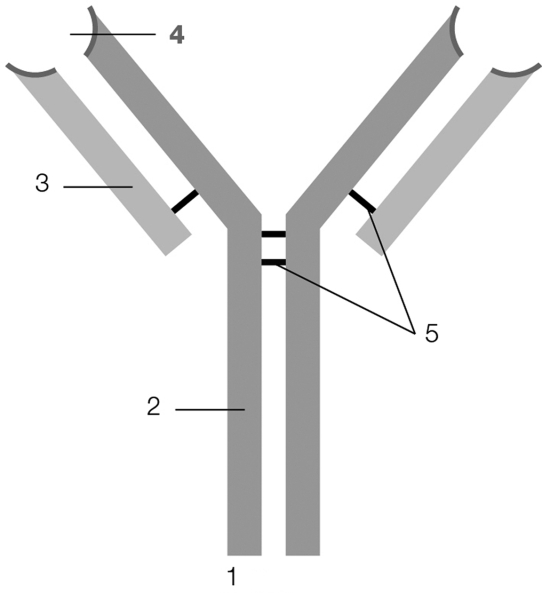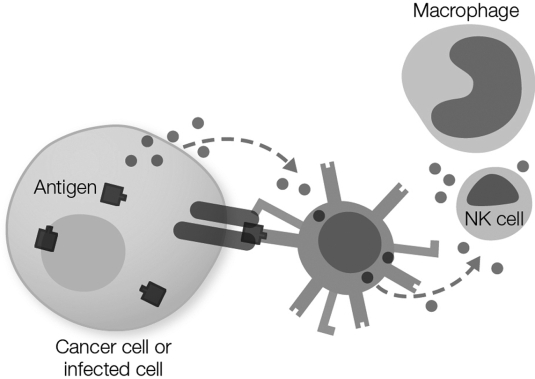Exam 12: Adaptive Immunity
Exam 1: Introduction to Microbiology46 Questions
Exam 2: Biochemistry Basics60 Questions
Exam 3: Introduction to Prokaryotic Cells47 Questions
Exam 4: Introduction to Eukaryotic Cells51 Questions
Exam 5: Genetics55 Questions
Exam 6: Viruses and Prions49 Questions
Exam 7: Fundamentals of Microbial Growth46 Questions
Exam 8: Microbial Metabolism60 Questions
Exam 9: Principles of Infectious Disease and Epidemiology47 Questions
Exam 10: Host-Microbe Interactions and Pathogenesis46 Questions
Exam 11: Innate Immunity60 Questions
Exam 12: Adaptive Immunity60 Questions
Exam 13: Immune System Disorders47 Questions
Exam 14: Vaccines and Biotechnology-Based Diagnostics and Therapeutics47 Questions
Exam 15: Antimicrobial Drugs46 Questions
Exam 16: Respiratory System Infections46 Questions
Exam 17: Skin and Eye Infections47 Questions
Exam 18: Nervous System Infections46 Questions
Exam 19: Digestive System Infections53 Questions
Exam 20: Urinary and Reproductive System Infections46 Questions
Exam 21: Cardiovascular and Lymphatic Infections46 Questions
Select questions type
Consider a genetic mutation which causes T helper cells to be unable to respond to stimulation by the cytokines which lead to TH2 differentiation. This mutation would cause a patient to be deficient in which activity?
(Multiple Choice)
4.8/5  (46)
(46)
Both the light and the heavy chains of an antibody are involved with epitope recognition and binding.
(True/False)
4.9/5  (28)
(28)
Which number on the diagram is labeling the portion of the antibody that makes it specific for the antigen is binds to? 
(Multiple Choice)
4.8/5  (25)
(25)
How is the immune system able to recognize a limitless number of different antigens and epitopes?
(Multiple Choice)
4.7/5  (41)
(41)
Which lymphocyte type is shown attacking the infected cell in the figure? 
(Multiple Choice)
4.7/5  (38)
(38)
The human immunodeficiency virus (HIV) selectively infects any cell which carries the CD4 surface glycoprotein. Which immune function will be impaired?
(Multiple Choice)
4.9/5  (37)
(37)
The difference between T cell activation by normal antigens and T cell activation by superantigens is that superantigens
(Multiple Choice)
4.9/5  (45)
(45)
T cell subclass differentiation allows T cell clones to recognize different epitopes of the same antigen.
(True/False)
4.9/5  (41)
(41)
By which means of acquiring immunity is likely to produce the longest lasting protection?
(Multiple Choice)
4.9/5  (36)
(36)
In contrast to a primary immune response, immunological memory
(Multiple Choice)
4.9/5  (47)
(47)
Graft- versus- host disease occurs when transplanted bone marrow gives rise to B and T cells that attack the recipient's tissues.
(True/False)
4.8/5  (34)
(34)
An antigen may consist of multiple epitopes, each of which recognized by different lymphocytes.
(True/False)
4.9/5  (41)
(41)
The humoral immune response can enhance phagocytosis by either direct interaction of antibodies with their antigen, or though antibody activation of the complement cascade.
(True/False)
4.9/5  (44)
(44)
A patient antibody titer which shows an increasing level of IgM but very little IgG would likely indicate that
(Multiple Choice)
4.9/5  (37)
(37)
Showing 41 - 60 of 60
Filters
- Essay(0)
- Multiple Choice(0)
- Short Answer(0)
- True False(0)
- Matching(0)